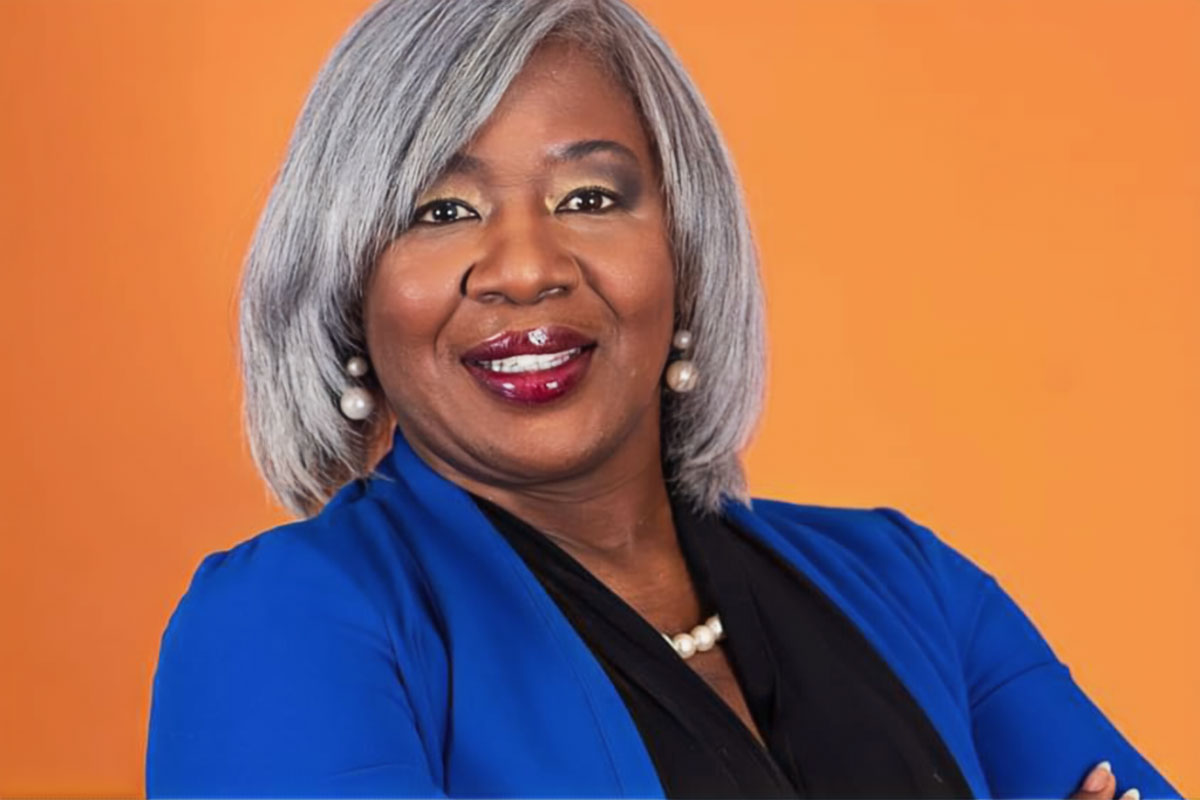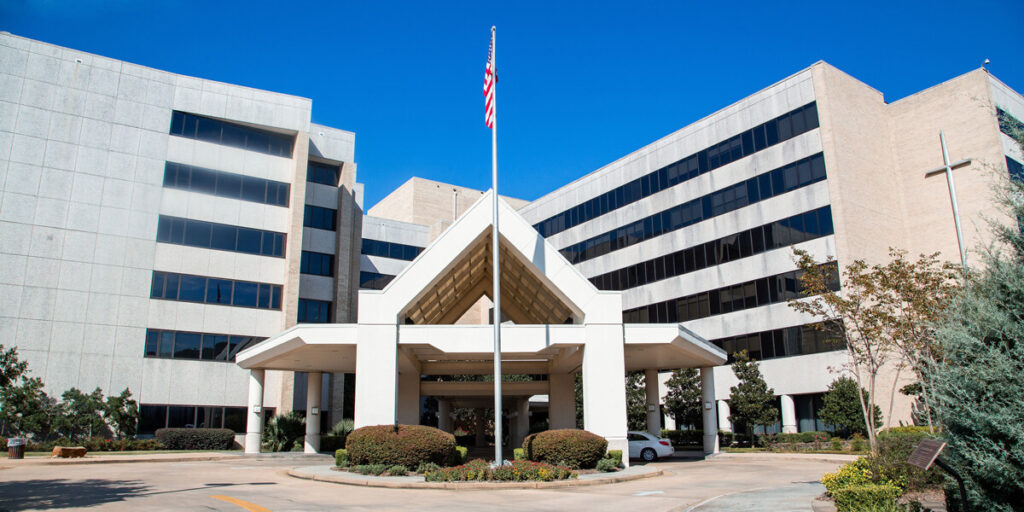Christiane Williams started uploading videos about mental health to Facebook after she sought counseling in early 2020. She said she was not expecting her videos to gain attention, but after her third post, she received a message from a viewer thanking her for her transparency.
“The next words (she said were), ‘I almost gave it all up today until I heard you,’” Williams recounted.
That message led Williams on a path to found her organization, Leading By Example-MS, providing workshops focused on mental health awareness and resources available to Mississippians.
As a law enforcement officer in the Department of Corrections, part of Williams’ job is knowing points of entry, meaning in-patient mental health hospitals where the crisis intervention team can take a patient for treatment.
St. Dominic Hospital’s behavioral health services in Jackson was one of two points of entry in Mississippi, but the hospital announced on June 5 that it is closing its mental health unit and laying off 157 full-time, part-time and PRN employees—5.5% of its total staff—across its service areas.
The press release said this decision was to “best serve the patients of central Mississippi and ensure the long-term sustainability of St. Dominic’s” because the hospital lost “several million dollars” in the past five years.
Meeting Mental Health Needs ‘No Longer Viable’
St. Dominic Hospital CEO Scott Kashman said the hospital “recognize(s) that mental health is a significant need, with various aspects of mental healthcare emerging as six of the top 25 needs identified in the most recent Community Health Needs Assessment.”
“While continuing to meet these needs directly is no longer viable for St. Dominic’s, we are working with partners to help patients access the care they need,” Kashman said in the press release. “Our health system will continue to advocate for additional state and federal resources to stabilize health care providers in Mississippi.”
Kashman is leaving his position at the hospital on July 7, St. Dominic Hospital Director of Marketing Meredith Bailess told the Mississippi Free Press.
“We are appreciative of Scott’s commitment to the Jackson community and his leadership of our team through a difficult financial environment and the end of the COVID-19 pandemic,” Bailess said in a statement on June 15.
Chief Nursing Officer Kristin Wolkart from Franciscan Missionaries of Our Lady Health System will become the interim market president on June 20 “to ensure a thoughtful transition in collaboration with Scott (Kashman),” the statement said.
Before her tenure as chief nursing officer, Wolkart was the market president for St. Francis Health. She has been employed at the hospital system for 28 years.

Now that Merit Health Central Inpatient Adult Behavioral Health in Jackson is the sole point of entry for crisis intervention teams to take people for in-patient treatment, Christiane Williams said its intake may double. People may also willingly choose to admit themselves to Merit Health.
“So, it is essential that we get some more mental health outlets or treatment centers, facilities in this area because St. Dominic’s didn’t just serve the tri-county area; it was people coming from all over the state to St. Dominic’s,” she said.
She compared the unit’s shutdown to a heart malfunctioning.
“So with St. Dominic’s closing, it’s almost like you’re sealing off one of the main valves to your heart,” Williams said.
Four state mental health hospitals are open for in-patient services: Mississippi State Hospital in Whitfield, North Mississippi State Hospital in Tupelo, South Mississippi State Hospital in Purvis and East Mississippi State Hospital in Meridian. But these hospitals typically admit patients through involuntary commitment, when a court orders a person to get treatment at a mental health facility.
Adam Moore, a public relations official at the Mississippi Department of Mental Health, said people should reach out to their community health center, like Region 8 and Region 9 in central Mississippi, for out-patient treatment.
“The community health centers are really kind of the first contact for a lot of people, and getting services through there can help prevent the need for in-patient services, like the kind that St. Dominic’s … was offering,” he said.
To help fill in the gap in mental health services, Hinds Behavioral Health, or Region 9, is working to open another clinic, but it will only have up to 20 beds, Williams explained.
Moore said Mississippi State Hospital opened up extra beds this year, but it hasn’t been able to fully operate because of staffing shortages. East Mississippi State Hospital has also added beds.
Mississippi’s Health Care Crisis
St. Dominic is the latest Mississippi hospital to announce severe cuts to its services; multiple other hospitals have cut services over the past year, including labor and delivery units. Dozens of rural hospitals are in financial peril.
Democratic candidate for governor Brandon Presley responded to St. Dominic’s announcement with a statement on June 6 renewing calls for the State to accept billions in federal dollars to expand Medicaid to more Mississippians, which could help hospitals financially since more patients would have coverage, lessening the burden of uncompensated care. St. Dominic leaders advocated for a Medicaid expansion plan as far back as 2014.
“Almost every day, we hear about a hospital cutting critical healthcare services or threatening to close its doors completely,” said Presley, who is currently the public service commissioner for Mississippi’s northern district, in a June 6 statement.

His likely opponent, Republican Gov. Tate Reeves, has long opposed Medicaid expansion and urged fellow Republicans earlier this year to instead “seek innovative free-market solutions that disrupt traditional health-care delivery models, increase competition and lead to better health outcomes for Mississippians.” In March, the incumbent signed a bill allowing community hospitals to collaborate or consolidate with the University of Mississippi Medical Center in Jackson.
Christiane Williams called on local, state and federal officials to respond to the “mental health crisis for this state” by providing more treatment facilities for patients.
She speaks at conferences and churches to raise awareness for mental illnesses and provide resources, like the national mental health hotline people can call at 988 whenever they need help. Williams is also trained in continuing education for law enforcement, which she provides as an employee of the Department of Corrections.
“I try to make sure that people know help is available, you know. Death is not the answer when we’re going through a mental health crisis,” Williams said.
Source : Mississippi Free Press


